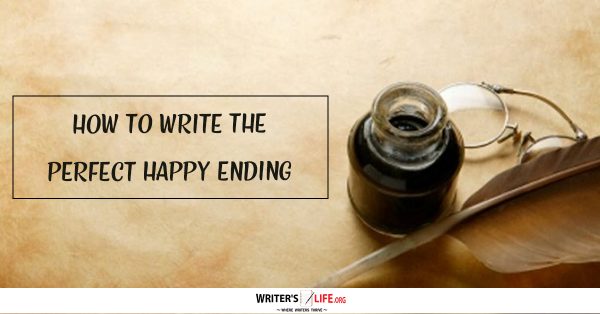- How To Tackle Jealousy In Creative Writing
- Common Submission Mistakes
- How To Stop Your Blog Becoming Boring
- The One Thing Every Successful Writer Has In Common
- How To Make Yourself Aware Of Publishing Scams
- Why Almost ALL Writers Make These Grammar Mistakes At Some Point
- 5 Tips For Authors On How To Deal With Rejection
- Top Mistakes to Avoid When Writing a Novel
- How to Avoid Common New Writer Mistakes
- 10 Mistakes New Fiction Writers Make
How To Write The Perfect Happy Ending

Everyone loves a happy ending, and indeed most authors choose to make the endings for their books positive. A happy ending leaves your readers with a warm, fuzzy feeling, and if they have been rooting for your protagonist to achieve their goals, they’ll finish the book feeling satisfied that they got the ending they deserved.
However writing a happy ending requires more than simply finishing your book with ‘and they all lived happily, ever after’! To create a seriously satisfying ending, one that will leave your readers with a lasting impression of your book, you need to carefully construct your ending to make it just right.
So what are the elements you need to include to create the perfect happy ending? Try these:
Avoid sickly sweet perfection
Your readers want your protagonist to get what they set out for, but if everything is miraculously, flawlessly perfect by the end, it may all seem a bit too good to be true. Create an ending that is positive but has a bittersweet edge, or simply reflects the struggles and sacrifices your protagonist had to make to get there. If you look to some of the endings of celebrated books, while they may be considered happy, there is usually something that keeps them from being entirely perfect, and that’s why readers root even harder and are even happier that the hero of your story got what they deserved in the end.
Tie up any loose ends
There is nothing worse than ending a book and going ‘is that it?’ If there are lots of unexplained elements to your book, or lots of parts to your story that remain open ended, you run the risk of frustrating your reader, now matter how pleasing your ending is. Tie up loose any loose ends before you finish your story - unless it’s part of a series that is in which case leaving them on a cliffhanger can be intriguing!
Keep it simple
Of course, the build up to the end of your story can be full of drama and tension and maybe even a twist or two. But when it comes to writing the actual ending don’t over complicate things. If you throw in distractions or suddenly add another element or layer you’ll only distract the reader, and this will make your ending seem weaker and take away from it somewhat.
Don’t use a cop out
Make you're ending thoughtful and meaningful. If your protagonist is in an impossible situation at the end of your book, think carefully about how to get them out of it. If they suddenly wake up and ‘it was all a dream’ or a magical unexplained force or character suddenly saves the day, your reader will feel cheated, and despite having resolved anything they won’t appreciate they way you’ve done it.
Don’t force a happy ending
If a happy ending doesn’t feel right, don’t force one just because you think it will please your readers. Write an ending that suits the style and content of your story, not all books have to have happy endings after all!

Bethany Cadman -author of 'Doctor Vanilla's Sunflowers'


























